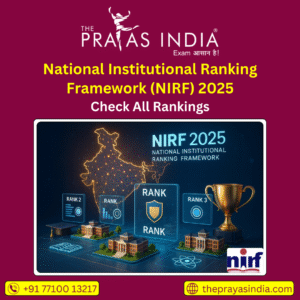The Chicago Speech: A Great Speech by Swami Vivekananda Ji
Swami Vivekananda’s address at the World’s Parliament of Religions held in Chicago in 1893 remains one of the most significant speeches in the history of modern India and global interfaith dialogue. His eloquent and inspiring words shook the foundation of religious tolerance and universal acceptance, laying the groundwork for global understanding and respect among all religions. This blog explores the essence of Vivekananda Ji’s speech and its timeless relevance.
The Historic Context
On September 11, 1893, in Chicago, Swami Vivekananda represented India and Hinduism at the first major interfaith event aimed at fostering dialogue among various world faiths. His warm and heartfelt response to the welcome he received set the tone for his entire speech.
Response to Welcome
“Sisters and Brothers of America,
It fills my heart with joy unspeakable to rise in response to the warm and cordial welcome which you have given us. I thank you in the name of the most ancient order of monks in the world, I thank you in the name of the mother of religions, and I thank you in the name of millions and millions of Hindu people of all classes and sects.
My thanks, also, to some of the speakers on this platform who, referring to the delegates from the Orient, have told you that these men from far-off nations may well claim the honor of bearing to different lands the idea of toleration. I am proud to belong to a religion which has taught the world both tolerance and universal acceptance. We believe not only in universal toleration, but we accept all religions as true. I am proud to belong to a nation which has sheltered the persecuted and the refugees of all religions and all nations of the earth. I am proud to tell you that we have gathered in our bosom the purest remnant of the Israelites, who came to Southern India and took refuge with us in the very year in which their holy temple was shattered to pieces by Roman tyranny. I am proud to belong to the religion which has sheltered and is still fostering the remnant of the grand Zoroastrian nation. I will quote to you, brethren, a few lines from a hymn which I remember to have repeated from my earliest boyhood, which is every day repeated by millions of human beings: ‘As the different streams having their sources in different paths which men take through different tendencies, various though they appear, crooked or straight, all lead to Thee.’
The present convention, which is one of the most august assemblies ever held, is in itself a vindication, a declaration to the world of the wonderful doctrine preached in the Gita: ‘Whosoever comes to Me, through whatsoever form, I reach him; all men are struggling through paths which in the end lead to me.’ Sectarianism, bigotry, and its horrible descendant, fanaticism, have long possessed this beautiful earth. They have filled the earth with violence, drenched it often and often with human blood, destroyed civilization and sent whole nations to despair. Had it not been for these horrible demons, human society would be far more advanced than it is now. But their time is come; and I fervently hope that the bell that tolled this morning in honor of this convention may be the death-knell of all fanaticism, of all persecutions with the sword or with the pen, and of all uncharitable feelings between persons wending their way to the same goal.”
The Core Message: Unity Through Diversity
Vivekananda articulated a profound message of religious tolerance and unity, asserting:
“We believe not only in universal toleration, but we accept all religions as true.”
He spoke with pride of India’s historic role as a refuge for persecuted peoples of various faiths, including the Jews and Zoroastrians, underscoring the country’s spiritual inclusiveness. Citing a powerful metaphor from a childhood hymn, he likened religions to different streams flowing into the same ocean, explaining that diverse paths may appear crooked or straight but all ultimately converge to the same divine truth.
A Call to End Fanaticism and Bigotry
Vivekananda did not shy away from addressing the toxic effects of fanaticism, sectarianism, and intolerance. He declared that such attitudes had plagued human society for centuries, causing immense violence and suffering, yet he expressed hope that the Parliament’s assembly would mark the death knell of such divisiveness.
The Frog in the Well: A Metaphor for Limited Perspectives
One of the most memorable parts of his speech was the story of a frog living in a well, limited in vision and refusing to acknowledge the vastness of the sea outside. This metaphor illustrated how different religions and cultures often view only their own beliefs as absolute truth, unaware of the larger spiritual reality that transcends individual traditions.
Spiritual Universalism and the Path Forward
Vivekananda explained that his Hindu philosophy did not aim for conversion or dominance but championed universal spirituality:
“I do not wish that the Christian become a Hindu, or the Hindu or Buddhist become a Christian. God forbid.”
He advocated mutual respect, coexistence, and acknowledgment that all religions embody facets of the same ultimate reality.
The Relevance Today
The lessons from Swami Vivekananda’s 1893 speech remain deeply relevant in today’s world, where religious intolerance and sectarian conflicts persist. His clarion call for harmony, acceptance, and spiritual unity offers a timeless blueprint for peace and coexistence globally.
Conclusion
Swami Vivekananda’s Chicago speech profoundly influenced Indian nationalism, religious thought, and interfaith dialogue. It highlighted India’s spiritual legacy of tolerance and universal acceptance. Through his words, Vivekananda Ji invited the world to rise above narrow prejudices and embrace a future defined by compassion and unity.
The message of Swami Vivekananda continues to inspire generations to appreciate diversity and seek harmony, echoing the essence of humanity’s spiritual journey. The Prayas India proudly shares this profound legacy as part of our commitment to holistic education and cultural awareness.








